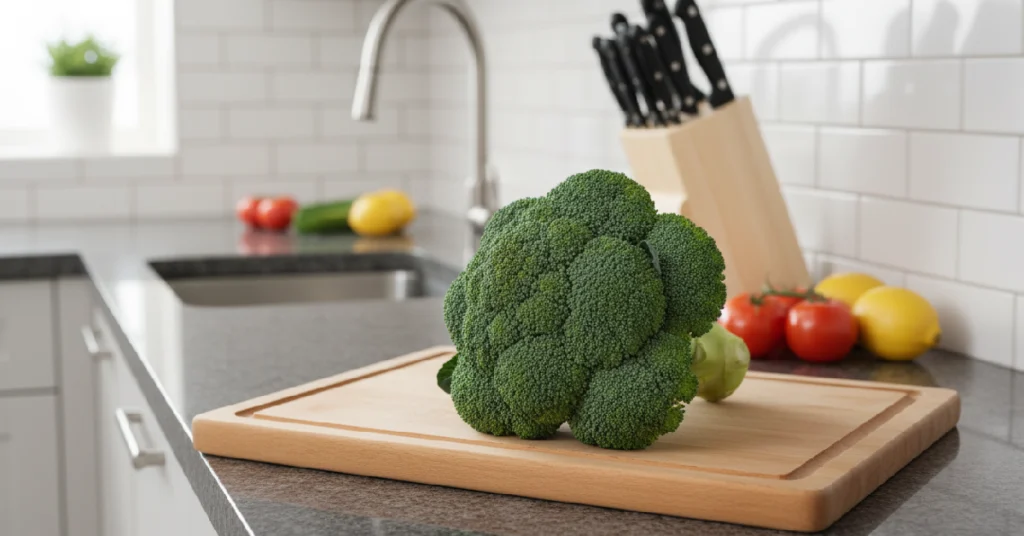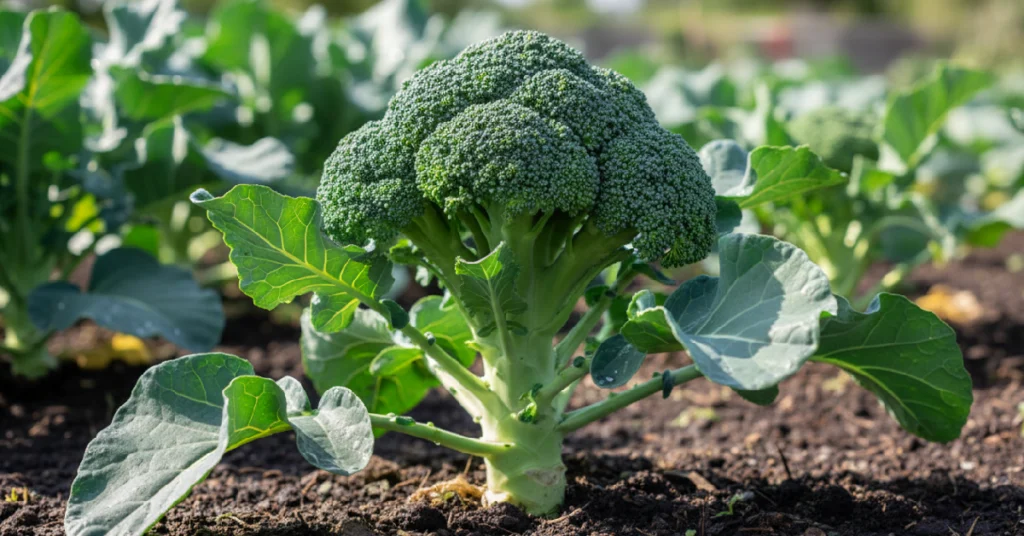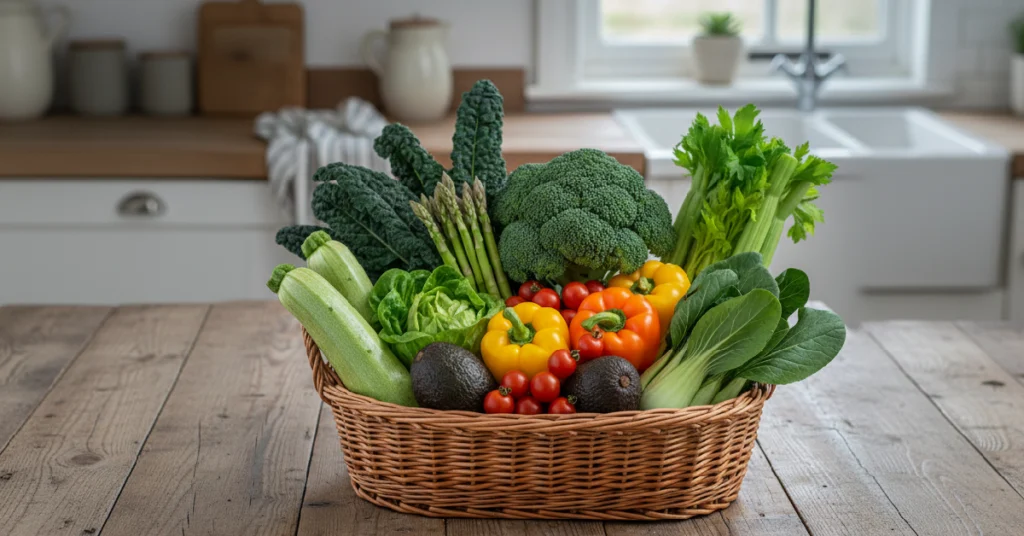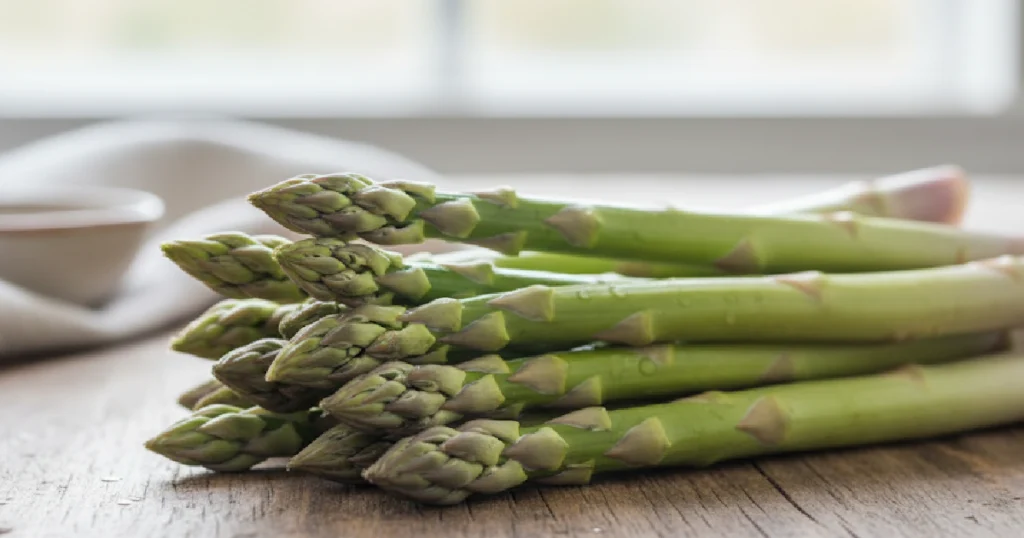Fresh, crunchy, and versatile, lettuce is one of the most common leafy vegetables on our plates. While it often gets dismissed as “just water,” lettuce nutrition actually tells a different story. Packed with hydration, fiber, and essential vitamins, lettuce makes a smart choice for light, healthy meals.
In this blog, we’ll explore the nutritional value of lettuce, its calories, protein content, vitamins, and minerals, along with answers to common questions about its health benefits.
Lettuce Nutrition Value at a Glance
Lettuce is made up of nearly 95 percent water, which is why it feels so refreshing. Alongside hydration, it contributes small amounts of carbohydrates, fiber, protein, and minerals. The nutritional value of lettuce is often compared with other greens, and while it may not be as nutrient-dense as spinach or kale, its mild taste and low calorie profile make it perfect as a meal base..
How Many Calories Are in Lettuce?
Lettuce is one of the lowest-calorie foods you can eat. This is why it’s often recommended for weight management and low-carb diets.
- 100 g of lettuce: about 15 kcal
- 1 cup of lettuce (around 36 g): about 5 kcal
Because of this, you can enjoy large bowls of lettuce-based salads without worrying about going over your daily calorie limit. Unlike starchy vegetables such as corn or potatoes, lettuce will not spike blood sugar levels. If you are exploring other light vegetables, zucchini is another low-calorie option often compared with lettuce for its role in weight-friendly diets.
Pairing it with nutrient-rich ingredients like beans, eggs, or avocado turns lettuce into a balanced meal that is light yet filling.
Protein Content in Lettuce Explained
Lettuce does not rank high as a protein source, but it still makes a small contribution to your diet.
- 100 g of lettuce: about 1 g protein
- 1 cup of lettuce: about 0.3 g protein
While this is a small amount, lettuce works well as a complement to protein-rich foods. Adding lettuce to chickpea salads, egg dishes, or grilled chicken wraps not only makes meals more refreshing but also adds fiber and volume. For people interested in leafy greens with a slightly stronger protein profile, kale is another excellent choice to try.
Vitamins and Minerals in Lettuce Nutrition
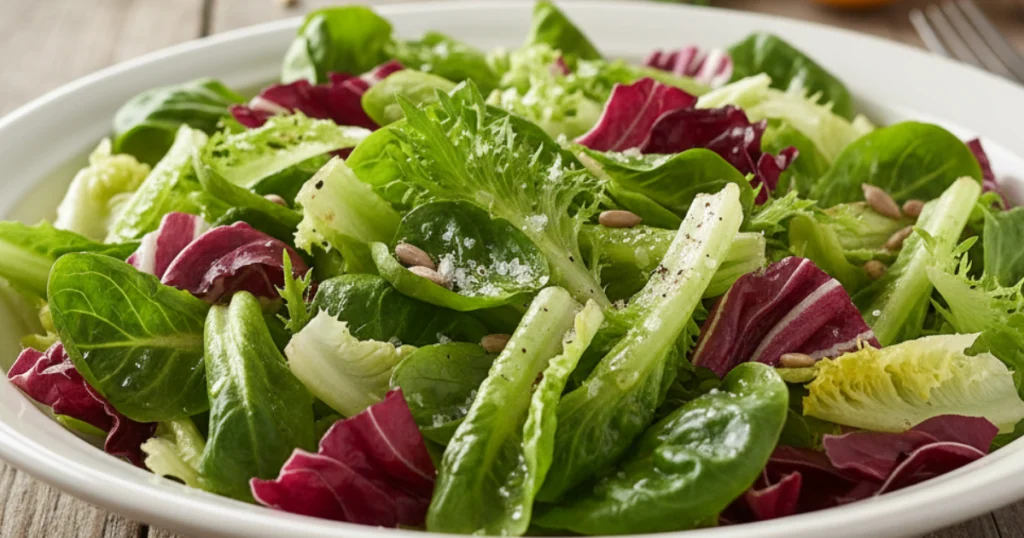
Even though lettuce is light in calories, it provides a helpful mix of vitamins and minerals:
- Vitamin A: Supports eye health and immunity.
- Vitamin K: Strengthens bones and helps blood clotting.
- Vitamin C: Acts as an antioxidant and boosts skin health.
- Folate (Vitamin B9): Important for red blood cell production.
- Potassium: Supports heart and muscle function.
The vitamin content depends on the variety. Romaine and red leaf lettuce usually provide higher amounts of nutrients compared to iceberg, which is mainly chosen for its crisp texture.
For a complete background on lettuce as a plant, including its meaning and botanical details, see our main guide on Lettuce Plant.
Lettuce Nutrition Facts (Per 100g)
| Nutrient | Amount | Benefit |
| Calories | ~15 kcal | Low-calorie, weight-friendly |
| Protein | 1 g | Complements protein sources |
| Carbohydrates | 2.9 g | Provides quick energy |
| Fiber | 1.3 g | Aids digestion and satiety |
| Vitamin A | 166 µg | Eye health and immunity |
| Vitamin K | 126 µg | Bone strength and blood health |
| Vitamin C | 9 mg | Skin health and antioxidant |
| Folate (B9) | 38 µg | Red blood cell formation |
| Potassium | 194 mg | Fluid balance and heart health |
Final Thoughts
Lettuce may not be the most powerful superfood, but its light calories, refreshing crunch, and steady supply of vitamins make it a valuable addition to everyday meals. At just 15 calories per 100 grams, it is one of the simplest ways to enjoy more food volume without excess energy intake. From salads and sandwiches to wraps and garnishes, lettuce works as a perfect base for building healthier dishes. Its versatility, hydration benefits, and gentle nutrient profile make it a dependable choice for anyone aiming to eat light yet balanced.
Frequently Asked Questions (FAQs)
Is it okay to eat lettuce every day?
Yes, it is safe to include lettuce in your daily diet. Its low calories and high water content make it a great choice for regular meals. Just remember to wash it properly before eating raw.
What organ is lettuce good for?
Lettuce supports the digestive system due to its fiber and hydration. Its vitamin A benefits the eyes, and vitamin K helps maintain strong bones.
Is lettuce good for health?
Absolutely. While it may not be as nutrient-packed as kale or spinach, lettuce is still a healthy, hydrating, and low-calorie food. It can aid in weight management, improve hydration, and support immunity and bone health when part of a balanced diet.



